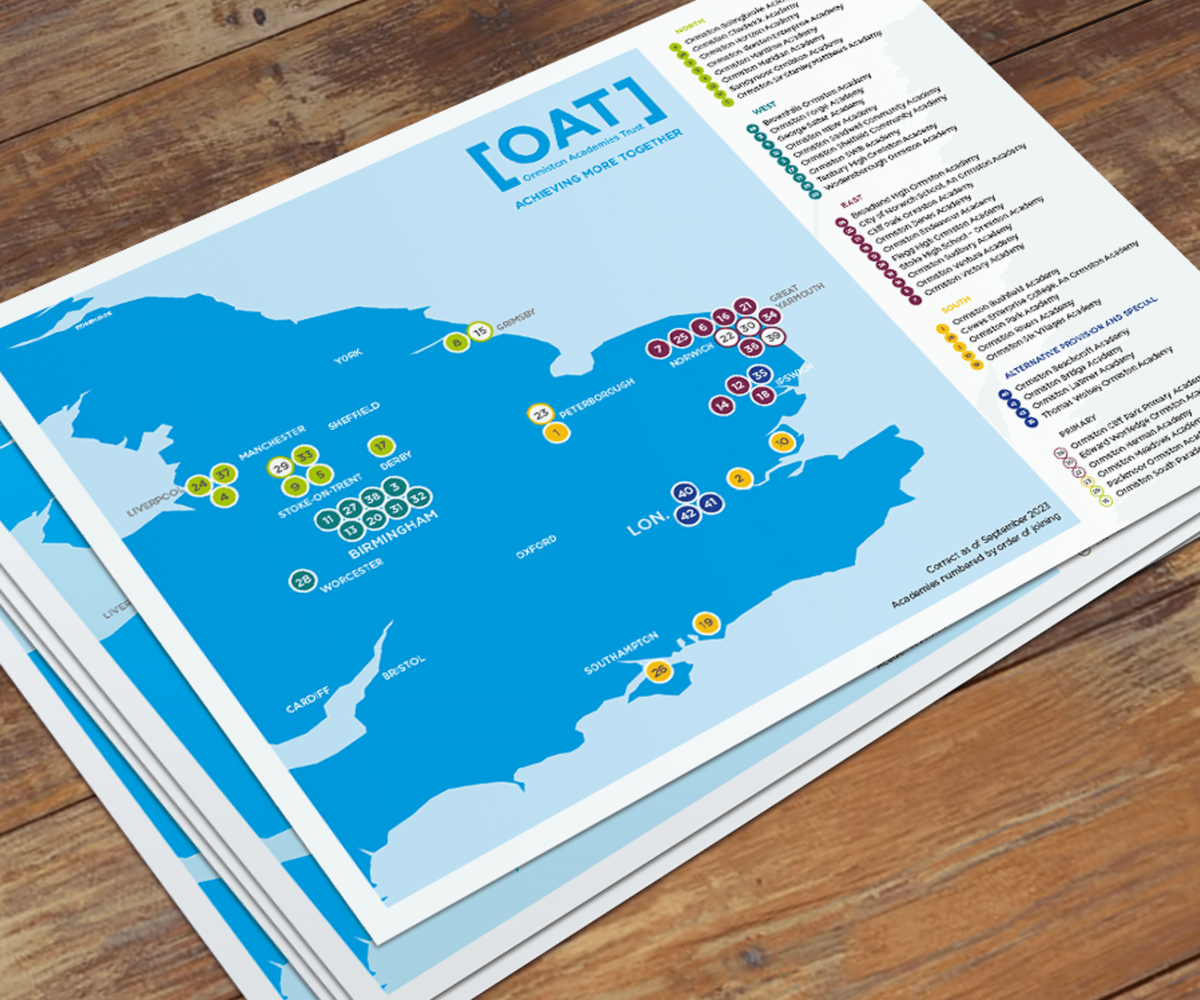Merlin - Our internal Power BI App :: ALT

The unveiling of Merlin, our internal PowerBI App, signified a significant milestone in our data journey. Merlin was designed to streamline data management processes, eradicating silos and furnishing accessible insights. It handled data from various sources like SIMS, FFT, and DfE sites, symbolising a leap forward in our data utilisation capabilities.
The objective was to establish a comprehensive data warehouse, integrating multiple sources and a dashboard interface, revolutionising our ability to:
- Integrate data sources swiftly
- Provide easy access to cross-departmental information and analysis
- Reduce time spent on data manipulation
- Increase focus on data-led decisions/actions
This solution wasn’t just about gathering data but also conducting in-depth analysis for meaningful insights. Teams ensured Merlin covered various sources and delved into analysis for informed decision-making. This entailed rigorous testing, refining algorithms, and enhancing visualisation techniques.
The project also sparked internal discussions about data usage and quality, refining our approach to data management and fostering a culture of data-driven decision-making.
Background
Before the advent of Merlin, our data processing heavily relied on conventional SIMS data extraction methods, leading to inefficiencies and the creation of data silos. Recognising the need for a more efficient approach, we embarked on a journey to harness modern technology to address these challenges. In this pursuit, Wonde emerged as a pivotal component of our solution. By integrating Merlin with Wonde, we created an MIS agnostic solution to our data extraction process, ensuring secure data storage within an MS SQL database.
The development of Merlin aimed to encompass the comprehensive coverage of the seven themes delineated in the DfE’s “Understanding Your Data: A Guide for School Governors and Academy Trustees” document, while simultaneously reporting on all Active Learning Trust KPIs. These themes spanned crucial aspects such as school and pupil numbers, attendance and exclusions, staff and class sizes, financial management, Ofsted ratings, safeguarding, and pupil context.
Our primary objective was to establish a self-service reporting structure that would engender consistency across all sites. Achieving this necessitated a meticulous approach to defining data definitions, thereby ensuring uniformity and fostering a deeper understanding for end-users. Through this concerted effort, we aimed to empower stakeholders with robust and accessible insights, facilitating informed decision-making and strategic planning across the organisation.

Implementation
The implementation of Merlin involved a meticulous process of integration and testing, aiming to enhance our data processing capabilities. Leveraging the capabilities of Wonde, we established a secure pipeline for data extraction from various source systems. This data was then seamlessly pipelined to a single Microsoft SQL Server database, ensuring its integrity and accessibility.
One notable aspect of this implementation was the adoption of a data warehouse approach, which enabled us to transcend the limitations of snapshot data. By utilising Microsoft SQL Server, we were able to create a historical view of our data, providing insights into past trends and patterns. This historical perspective offered valuable opportunities for further work in forecasting and strategic decision-making.
However, the implementation also raised questions and opportunities for improvement in data quality and uniformity. As we integrated data from diverse sources into Merlin, discrepancies and inconsistencies became apparent. This prompted internal discussions about data governance and quality assurance, leading to initiatives aimed at standardising data definitions and improving data accuracy.
Furthermore, the development of the PowerBI app underwent iterative refinement, focusing on user experience and data visualisation. Through this process, we aimed to create a tool that would empower users with intuitive and actionable insights. Feedback loops and testing were essential in fine-tuning the app to meet the diverse needs of stakeholders.
Overall, the implementation of Merlin was not just about streamlining data processing but also about fostering a culture of data-driven decision-making. It prompted introspection and action on data quality issues, laying the groundwork for improved governance and uniformity. As we look to continue to refine and expand Merlin’s capabilities, we remain committed to leveraging data to drive informed decisions and innovation within our organisation.

Skills Development
The journey towards implementing Merlin demanded not only technical expertise but also emphasised the importance of networking and collaboration. Engaging with industry contacts such as Ben Dobbs and Victoria Merrick proved invaluable, offering unique insights and forging meaningful connections. These chance encounters played a pivotal role in shaping our approach and refining our solution, demonstrating the profound impact of collaboration in overcoming complex challenges.
In addition, the development of Merlin provided a fertile ground for us to enhance their skills across various domains. Delving into the intricacies of data management, integration, and PowerBI development, team members were afforded the opportunity to expand their knowledge and expertise. Through hands-on experience and continuous learning, we honed our abilities, gaining a deeper understanding of the technologies and methodologies underpinning Merlin’s implementation.
Moreover, the collaborative nature of the project fostered a culture of knowledge-sharing and innovation within our organisation. As team members collaborated closely, sharing insights and troubleshooting challenges, a sense of camaraderie and collective ownership emerged. This collaborative spirit not only accelerated the pace of development but also enriched the final solution, drawing upon the diverse expertise and perspectives of our team members.
As we reflect on the journey towards implementing Merlin, it becomes evident that success was not solely attributed to technical proficiency but also to the strength of our collaborative efforts. Through networking, collaboration, and continuous skill development, we navigated through the complexities of implementation, emerging with a robust and innovative solution.
Impact
The impact of Merlin on our data processing capabilities has been sizable. Through the elimination of data silos and the automation of repetitive tasks, Merlin has not only saved countless hours but has also empowered our team with readily accessible insights, transforming our approach to data management. The integration with Wonde has further bolstered data security and reliability, instilling confidence in the integrity of our data pipeline. With Merlin seamlessly integrated into our systems, we are now better equipped than ever to leverage the power of data to drive informed decision-making and foster collaboration across our trust.
However, it’s important to note that the implementation of Merlin, thus far, has not encompassed assessment data. While the tangible impact remains unquantifiable at present, there has been a notable increase in engagement with data across the Trust. This surge in engagement speaks volumes about the potential of Merlin to revolutionise our data culture and decision-making processes. As staff become more familiar with the reports, applications, and potential uses of Merlin, we anticipate a further uptick in engagement, paving the way for enhanced data-driven practices and outcomes across the trust.
Next Steps
As we look ahead, our focus naturally gravitates towards the ongoing refinement and expansion of Merlin’s capabilities. This journey is not just about technical enhancements but also about aligning our data strategy with the evolving direction of our Trust. With recent personnel changes within the organisation, we are in the process of establishing a comprehensive data strategy that reflects our current trajectory and ensures that we remain at the forefront of data management and reporting practices.
Currently, there is a thorough review underway regarding the uses and applications of Merlin, as well as the development of an independent data warehouse. These initiatives are integral to our broader efforts to optimise our data infrastructure and enhance our analytical capabilities. We anticipate that these strategic initiatives will culminate in a new iteration of Merlin, slated for launch in Summer 2024. This updated version will incorporate valuable insights gained from the review process and will include comprehensive staff training to facilitate widespread adoption and engagement.
The introduction of enhanced staff training is anticipated to be a significant catalyst for increasing engagement with data across the Trust. By equipping our staff with the knowledge and skills needed to effectively utilise Merlin and interpret data insights, we aim to foster a culture of data-driven decision-making and drive operational change within our trust. This training initiative underscores our commitment to empowering our staff and leveraging data as a strategic asset to inform and guide our actions and initiatives moving forward.
Conclusion
The implementation of Merlin has enhanced our data processing capabilities and transformed our approach to data management. By integrating technologies such as Microsoft SQL Server and Wonde and fostering a culture of collaboration and continuous learning, we have streamlined our data infrastructure and unlocked new possibilities for analysis.
Merlin has had a positive impact on our trust, empowering our team with readily accessible insights and enhancing our capacity for informed decision-making and collaboration. However, our journey is far from over.
Looking ahead, our focus is on refining and expanding Merlin’s capabilities. This includes optimising data pipelines, enhancing the PowerBI app, and exploring additional integrations to enrich our data sources. Concurrently, we are establishing a comprehensive data strategy to align with the direction of our Trust.
With a new iteration of Merlin expected in Summer 2024 and comprehensive staff training initiatives underway, we anticipate increased engagement with data across the Trust. This renewed focus on data literacy is expected to drive operational change and foster innovation.
In essence, the implementation of Merlin has been about more than just technological advancements. It has been about fostering a culture of collaboration, innovation, and data-driven decision-making. As we continue to navigate our data landscape, we remain committed to leveraging data to drive positive outcomes and shape the future of our trust.
Greg Dimsey
The Active Learning Trust
Read more case studies
View all
Strategic Progress Reporting & MAT Census :: OAT

Implementing MAT Dashboards with Google Tools :: FCAT
